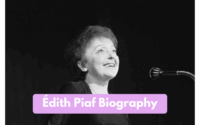Godwin Asediba Biography: Wikipedia, Education, Age, Net Worth, Tribe, Wife

Godwin Asediba is one of Ghana’s fastest-rising broadcast journalists and documentary filmmakers. Known for investigative, human-interest reporting that amplifies marginalized voices across Ghana and West Africa, Asediba has quickly earned national and international recognition for his work.
This in-depth biography explores his background, education, career highlights, signature documentaries, awards, and the journalistic philosophy that drives him.
Early Life and Education
Details about Godwin Asediba’s childhood and hometown are modestly private in public records, but his pathway into journalism is clearly traced through his academic training. He studied at the Ghana Institute of Journalism, a respected training ground for many of the country’s media professionals. His formal education helped shape his reporting style — blending rigorous investigation with empathetic storytelling.
Career Beginnings
Asediba’s career in broadcast journalism began in the mid-2010s. He cut his teeth reporting on social issues and human-interest stories, eventually joining major Ghanaian media platforms where he could both report and produce documentaries. Over time, his pieces — often focused on vulnerable communities, healthcare, youth challenges, and social injustice — began to attract wider attention.
Breakthrough Work and Signature Documentaries
A key part of Asediba’s career is his documentary work. He is credited with several hard-hitting documentaries that expose social harms and institutional failures. Notable works include:
- “Ghanaian Men Promised Security Job, Sent to War in Ukraine” — an investigative piece that uncovered the exploitation and dangerous outcomes faced by men lured into conflict zones.
- “Married to Cocaine” — a documentary delving into the rising drug abuse crisis among youth and its community impacts.
- “My Period Is Not a Shame” — a socially impactful piece tackling menstrual stigma and girls’ health.
- Additional works include Troubled Morgue, No Rest in Peace, High on Glue, and Dreams in Shambles, all reflecting a consistent focus on social justice and public-health issues.
Style and Approach
Asediba’s reporting blends investigative methodology with narrative empathy. He seeks to humanize statistics by telling individual stories that reveal systemic problems. This approach has made his documentaries both compelling and impactful, drawing attention from policymakers, NGOs, and international journalism bodies.
Major Awards and Recognition
Godwin Asediba’s reporting and documentary work have earned multiple awards and recognitions, including:
- BBC News Komla Dumor Award (2025) — a prestigious accolade that recognizes outstanding African journalists and includes professional development opportunities with the BBC.
- Michael Elliott Award for Excellence in African Storytelling (ICFJ) — an international recognition for compelling storytelling in African journalism.
- National Journalism Awards and Regional Recognitions — including multiple Ghana Journalists Association nominations and wins for documentary and health reporting, plus regional honours for community reporting.
Impact: How His Work Changes Conversations
Asediba’s documentaries have catalyzed public conversation on topics often swept under the rug. For instance, his reporting on migrants or exploited workers has pushed stakeholders to examine recruitment practices and protection gaps, while health-focused pieces have encouraged public health dialogues and interventions. His storytelling goes beyond headlines — it encourages accountability and, in some cases, policy re-evaluation.
Professional Affiliations and Platforms
Asediba is associated with Media General’s TV3 and 3FM, two of Ghana’s leading media outlets, where he anchors, produces, and reports. His cross-platform presence — television broadcasts, radio features, and online documentaries — has helped his work reach diverse audiences and gain traction with international journalism bodies.
Personal Notes & Public Presence
Although Asediba maintains a professional public profile, he engages audiences through social media channels where he shares behind-the-scenes glimpses, reflections on reporting challenges, and advocacy for ethical journalism. His online presence has also been a conduit for celebration when his documentary work gains recognition internationally.
Challenges He Highlights in Journalism
Asediba has spoken about the challenges young journalists face — limited resources, safety risks when investigating powerful actors, and the pressure to produce content quickly without sacrificing depth. He advocates for training, safety protocols, and ethical storytelling that protects sources while exposing harm.
What’s Next for Godwin Asediba?
With international awards and rising recognition, Asediba’s next steps likely include deeper investigative projects, mentorship roles, and collaborations with international newsrooms and NGOs to scale impact. Awards like the Komla Dumor often open doors for training, fellowships, and cross-border reporting opportunities that can broaden both the scope and reach of a journalist’s work.
Frequently Asked Questions (FAQs)
Who is Godwin Asediba?
Godwin Asediba is a Ghanaian investigative journalist, documentary filmmaker, and news presenter associated with Media General’s TV3 and 3FM.
Which awards has he won?
Among others, he is a recipient of the 2025 BBC Komla Dumor Award and the Michael Elliott Award for Excellence in African Storytelling. He has also won national awards for documentary and health reporting.
What topics does he cover?
His documentaries and reports often focus on social justice, health, youth issues, migration, and institutional accountability.
Where was he educated?
He studied journalism at the Ghana Institute of Journalism.
Where can I watch his documentaries?
His documentaries are typically broadcast on TV3 and shared on affiliated online platforms (Media General digital channels) and social media; some pieces are also covered and shared by national news outlets.
Conclusion
Godwin Asediba represents a powerful example of modern African journalism: rooted in local realities, committed to rigorous investigation, and capable of shaping national and international conversations. His trajectory from student reporter to award-winning documentarian highlights the influence that careful storytelling and ethical investigation can have on society — exposing harm, uplifting voices, and prompting change. As he continues to deepen his craft, the journalism world will likely watch closely, anticipating the next impactful story from this rising Ghanaian storyteller.


